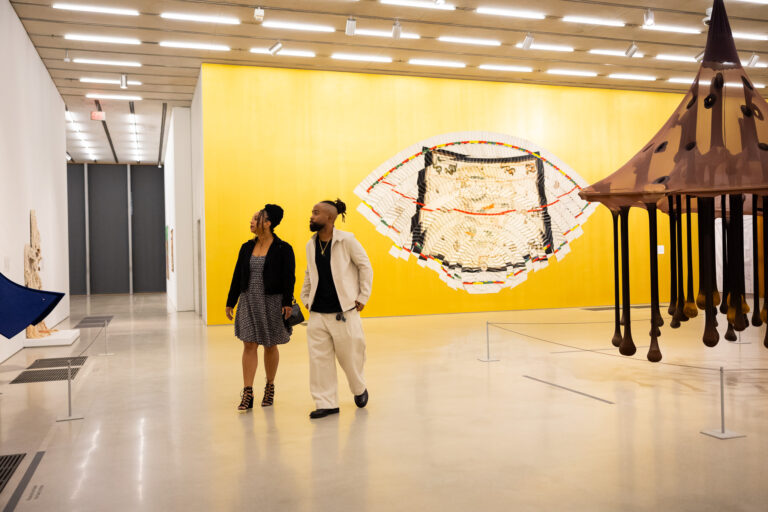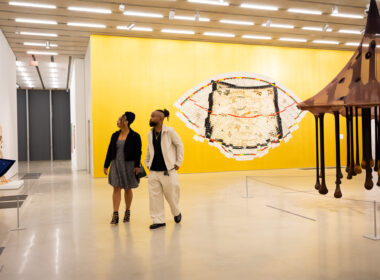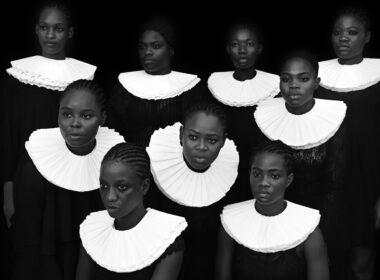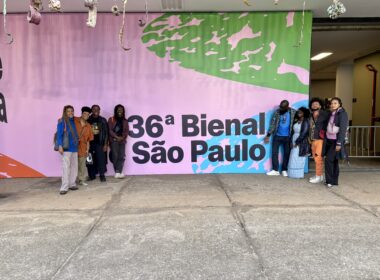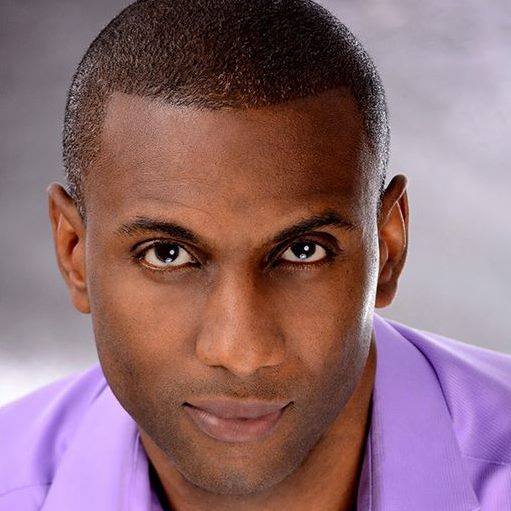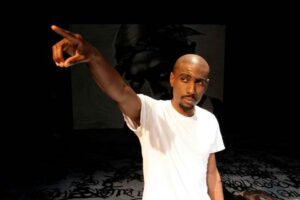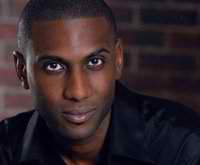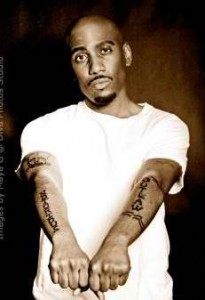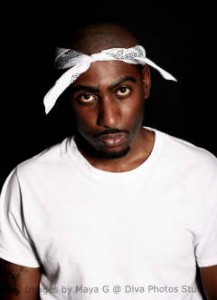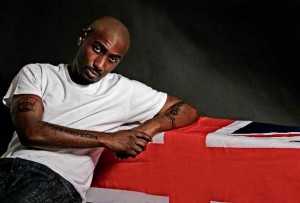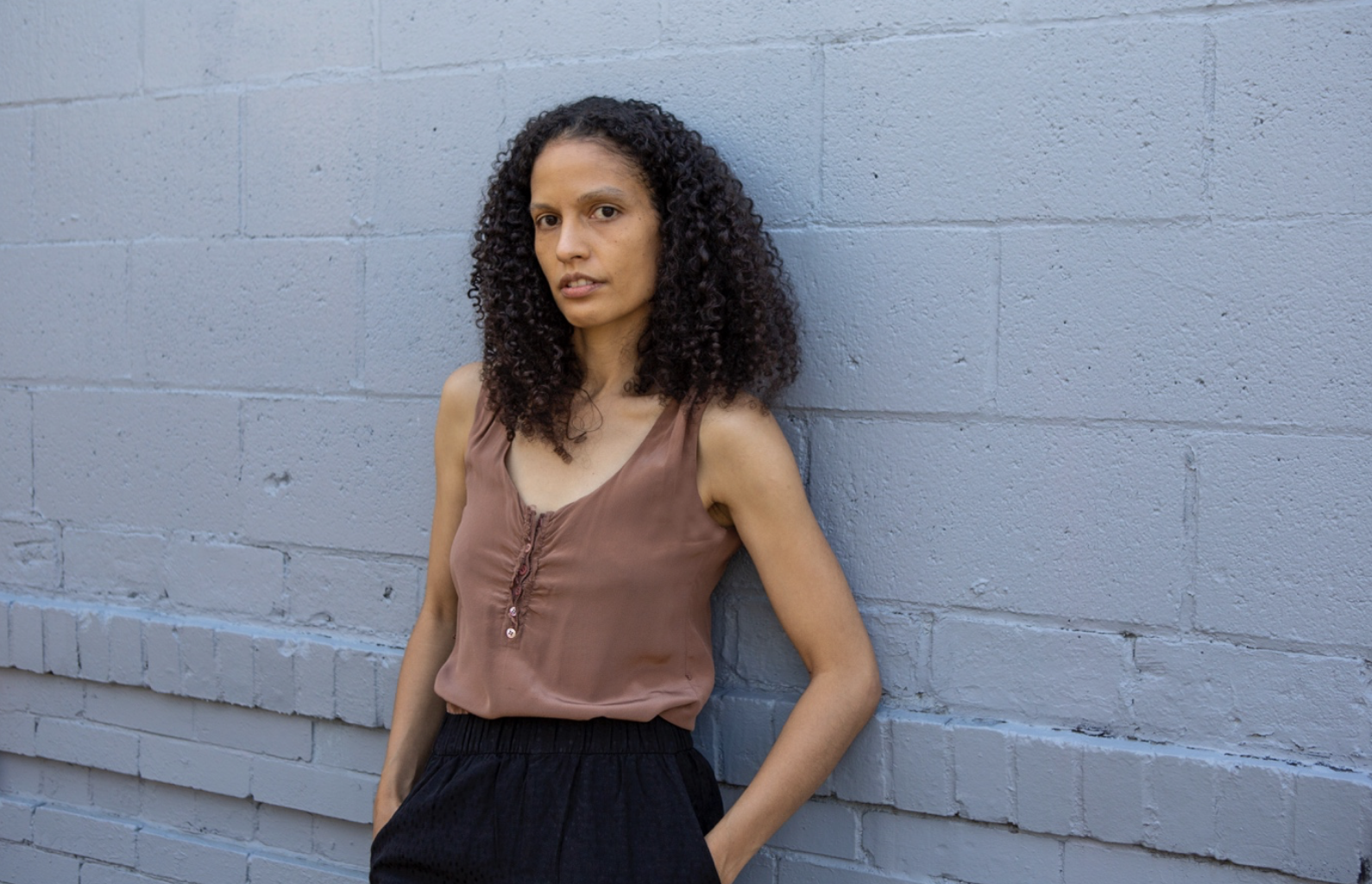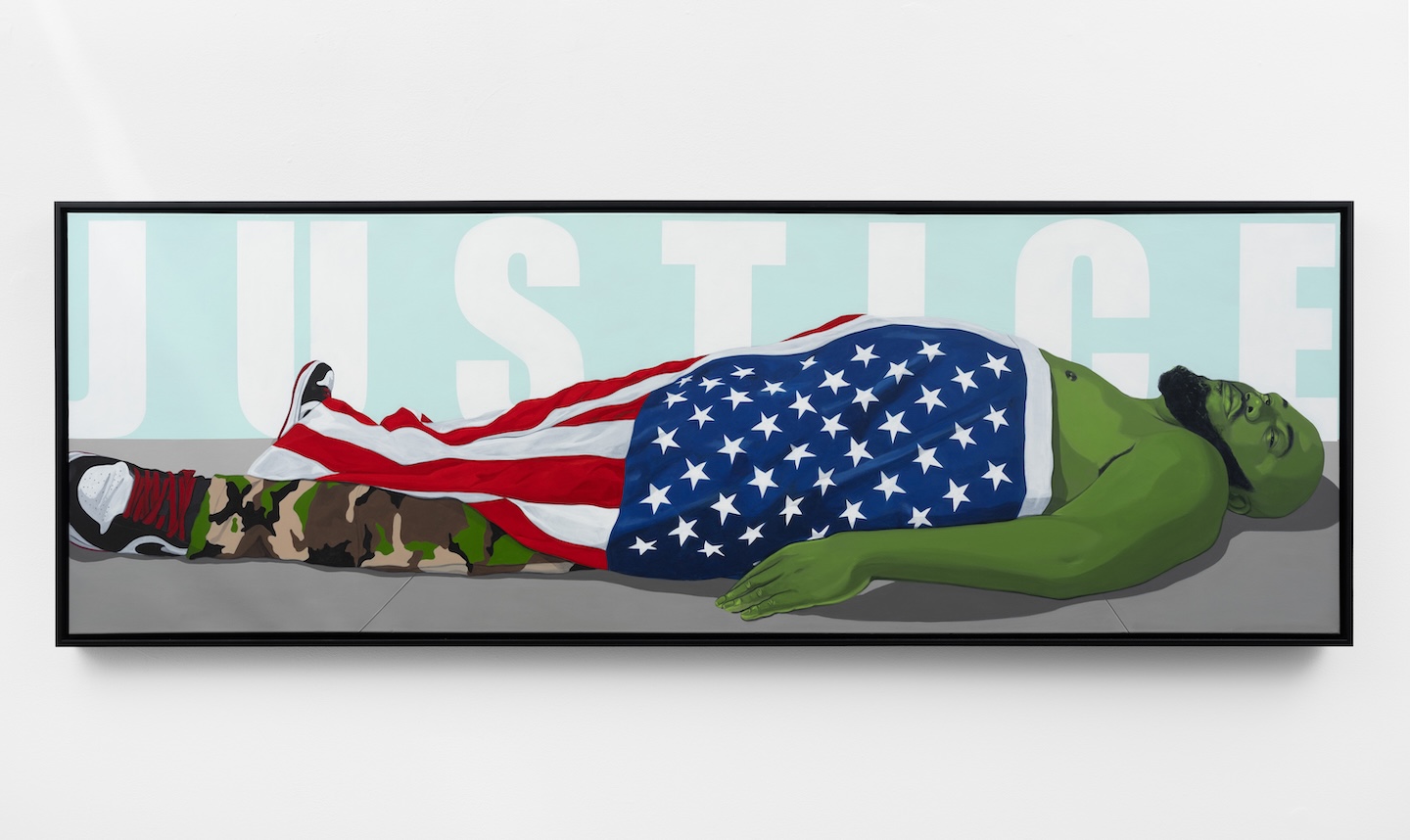The Life and Mind of Tupac Shakur written and performed by Meshaun Labrone and directed by Phillip Church gives us that glimpse into the real Tupac. Sugarcane Magazine had the pleasure of speaking with Meshaun Labrone. We caught up with Meshaun before his opening night in DC, and in between a rare break for the 16-20 hour a day thespian, to speak with him about the power and purpose of this play. He gave us a passionate and insightful look into how it falls right in line with the power and purpose of the man and unmasked myth of Tupac Shakur:
Sugarcane Mag (SM): Give us some background information on you, Meshaun, what’s a typical day in the life of Meshaun Labrone?
Meshaun Labrone (ML): I usually get up around 5am –this is typical – if I get up any later than that I feel like I’ve wasted a huge, important part of the day because I have to get in that right mind set. That’s the time I do my meditation, prayer, reading, work out (Mutai Boxing). After I do my Mutai, around 8am, I begin reading; I’m writing.
Some of the things I read are the Koran, Bible, and a publication of Time. I am constantly re-reading certain books like the Autobiography of Malcolm X, Message to the Black Man, King Leopold’s Ghost, Harriot Jacobs’ book Incidents in the Life of a Slave Girl, and I just completed for the second time Frederick Douglas’ book My Bondage and My Freedom. More importantly, what I constantly go over as far as plays are concerned is Richard III. My dream is to one day do that in England and possibly here in DC at the Shakespeare Theatre. I really, really, really like that play and the different ways that that play has been done is great, but I feel like it’s missing particular parts of that character that I think certain minority groups, if its presented to them the correct way, where they can actually see themselves can completely relate to that character. I think that hasn’t been done. There are so many different things in that particular play and a lot of his (Shakespeare) other plays too, that speak to the experiences of the African-American and Latino communities.
SM: It certainly sounds like it. Could you give us an example of how the minority experience is reflected in Shakespeare’s writings?
ML: Sure, in the Richard III play, the entire opening monologue is basically saying “I’m gonna be a gangsta, I’m gonna be a thug. I’m gonna do these things because nobody loves me; I’m not getting any love from nobody, nobody’s paying any attention to me. The war is over so I can’t be the solider that I once was. The only thing that I was really good at was killing and hunting down my enemy. So since I can’t do that and there’s no use for me anymore when we’re in a time of peace; everybody bypasses me, nobody acknowledges me, so since I can’t get acknowledged then I’m gonna stir up the pot. I’m gonna be where I’m most comfortable in the mist of chaos and confusion. And yeah, I’m the one who did it, so you’re definitely gonna acknowledge me now. You don’t want to acknowledge me unless we’re shootin’, unless we’re killing. You wanna bypass me in class; you wanna call me names” – like Malcolm said, I heard nigga so much I thought it was my name. And that’s our experience. So when we act out in a certain way others are like “what’s wrong with him, you’re crazy.” Yeah, you’re right, I am crazy because my whole life I’ve been told that I’m nothing; that I’m no consequence just put me in the corner and leave me alone. But when I do well, you get “you’re not like the others,” (laughing) I know I’m going off on a tangent, but that play that’s why I always re-read that particular play because it speaks to the black experience. I know we could do it if we gave ourselves a chance, if others gave us a chance.
SM: Right, I hear so much passion in that observation that unfortunately minorities only seem to get attention when we act out. Wow, ok, I know that, and touching on Shakespeare and black actors, two came to mind where they were in a movie based on Shakespeare’s plays. Lawrence Fishbourne was in Othello and Denzel Washington was in Much Ado About Nothing. We definitely do have a place in the Shakespeare’s world.
ML: And Avery Brooks, he was on that 80s TV show Hawk and the teacher in American History X. He’s done a lot of Shakespeare’s work oversees and in the DC area. Those brothers, they are just so passionate about the work and that when you see them, you see that they own the language and you’re not just looking at their blackness; you see a man who embodies this character and I always take note of that and put that into my mental notations of how they approach their characters. These brothers maybe tall and good looking and they get their opportunities, but there are so many others that are hidden. They are at that Yale Drama Schools and NYU; some of them even just take classes and deserve the opportunity to display their skills. Unfortunately, we’re living in a time now where hard work, dedication and sacrifice to their craft, which is so important and so powerful; see you can transform an entire audience just by the words and the conviction you have in those words in a play. You completely change the way they view the whole world. You basically are the teachers and the ministers and the preachers when you’re on that stage – so I don’t take that lightly. Performance and entertainment are the most powerful ways of experience on the planet; it changes society. It can uplift a society or make a society go backward.
SM: Your passion for the craft and within your personal works are absolutely evident. This makes me so excited about Right to Remain. The energy you’ve exuded in this interview about the craft is only the tip of the iceberg of the truth of who you are. The word passion just seems to roll off my tongue in describing you because it’s so appropriate. Now, just to re-direct.
ML: (laughing) I got a little carried away there.
SM: Hey, it’s ok. It’s the truth. We can get carried away on the truth. So much of what you were saying absolutely needs to be heard. But for the sake of time, so we were talking about a day in the life; just a typical day.
ML: (laughing)
SM: Yes, just a typical day. So after your workout, meditation, reading, what do you do next?
ML: What’s next is spending time working with students at McKinley Tech High School here in DC. I began working with them last year as a volunteer directing a play; a physical reading from a play about sex trafficking. At that time, we worked with four of their students, my mentor and director, Phillip M. Church and Florida International University (FIU) as a collaborative project and the play premiered at the Kennedy Center and it was a great success. I fell in love with these students and was very happy when I was invited back by social worker, Maurice Butler this past January. He wanted me to talk about my play and talk about what I knew about Tupac. And from that day, I fell in love with working with these troubled youth, these bad youths that skip class and he would have them come there during their lunch periods to learn something and at that point we had 10-12 students, but now, during the summer, when school is out, we had at least 40-50 students, boys and girls and from that little collaborative meeting of the minds with Mr. Butler and myself, we developed this group called the OG group, Our Generation Group.
We have Our Generation Group boys and girls and we work together to talk about different issues that they may be faced with and different things they probably never heard before in their classrooms. Time just flies by and they’ve experienced and learned more during our time than they have in their classrooms. If I’m not doing that I’m writing. I’m writing poetry or my thoughts. I’m always putting something down on paper to have something for myself, as well as to pass around to literary agents should I look at wanting to in the future. I’m actually working on another play. To close, my day ends with Yoga and spending time with my friends or to the Mosque for a reading on Friday nights. On those rare occasions that I watch TV, I usually watch Locked Up Aboard or something on the History channel, Sci-Fi channel or Discovery channel. I love Morgan Freeman’s the Wormhole where he’s narrating about the universe or Stephen Hawkins.
SM: Ok, fabulous, keeping your mind pulsating. Wonderful.
ML: Oh yes, yes, well you need to do that.
SM: Definitely. Ok, Meshaun, wonderful. Now let’s discuss your beginnings. Let’s talk about where you grew up, what schools you attended and how you began your acting career?
ML: Ok, great. I grew up in Miami. My upbringing was in the South Miami Heights area. My family has been there until 1984 or 85. One of the reasons my father decided to move was because we were having so many break-ins.
We were the first black family to move into that neighborhood. When I was younger, my mom would tell me that on US 1 sometimes at the stoplights you would see the Klan on the street in their robes asking for donations. (laughing).
SM: (laughing) Really!
ML: (laughing) Really. Wearing their uniform, with their buckets asking for donations. She even said one time, my mom started as a Head start teacher, that they actually donated toys to Head start.
SM: In Miami (laughing)
ML: Yes, in Miami. That’s just the most bizarre thing that you ever want to find. (laughing) But, my father side he just got tired of coming home and having the home broken into. It always happened in the daytime and no one, no one ever saw anything. So, he got tired of that and said we needed to move around folks that look like us. So, we moved to Opa Locka around 85. That’s where I attended Lakes Stevens Middle and Carol City Senior High. I studied theatre even in elementary. I was kind of a class clown. A friend of mine mentioned I should be in the drama club and audition. I was like ok. I thought it was another opportunity for me to clown around. The drama teacher was Beverley White in Richmond Elementary. The first play I was in was about a kid who loved Thanksgiving because of the turkey.
So, one of the first scenes I remember was running up on stage and I was flapping my arms like a turkey saying gobble, gobble, gobble. I looked out into the audience and said I love Thanksgiving and they broke out laughing and I was hooked. I was like ok, yeah. There’s something to this. After that, I was always in a lot of different plays. I did all of that until my Junior high years where they had a drama class not drama program. In high school, the drama teacher was so mean, where football players would come out crying. I was like naw, I’ll pass. But, thankfully, at my father’s church, he was the pastor, my mom would always direct the youth programs and she would direct the Christmas plays and Easter plays. So, in High school I still had chances to perform in church. And that’s where I really developed my ability to write poetry during the golden age of Hip Hop in 1988. When I heard that sound I was like hey, yo, ok, let me put these poems together in a rhythmic style accompanied with music. I started a rap group with my cousin and we called ourselves Too Cool. We were writing, we would perform sometimes at the church and around the neighborhood. I just really fell in love with language and expression; realized that you could create stories within the words. So it wasn’t just about performing or saying lines from a play to tell a story. I could tell a story with words.
SM: You could tell your own story.
ML: Right, exactly, you can, you can. And after I graduated from high school, I didn’t really know what I wanted to do. My family, my father and most of all of my aunts attended college and graduated.
My family is mostly a bunch of teachers, ministers, and principles. So I really didn’t know what I wanted to do, but I wanted to perform. I decided to go to a community college, Miami Dade. When I got there, I wasn’t really thrilled because I would hear about performing arts schools in New York and my parents, God bless them, they really didn’t know anything about that stuff. They’d feel that this was a hobby. They’d say you need to get a job with the county. They really didn’t know. What would they know about Julliard, Yale and NYU. But, when I went into that classroom and met Barbara Lowery, I was just over the moon. And then I met John Pryor; these two teachers, they’re retired now, those teachers – I didn’t need to go to New York. They were New York for me. The way that they taught us how to express – they taught the complicated subtext within the script and how you can bring that truth out without even saying the lines – just with the look, the flex of your muscles, the way you walk out of the scene. That busted me wide open – now I understood what this acting thing was all about. They had wanted me to audition for some of the plays after 2 classes – one semester. I was like oh no, I’m not doing that. This big stage at Miami Dade North, no. I didn’t do it – I didn’t do it because I did not want to get up there and make a fool out of myself or out of my instructors. I wanted to truly understand what it was I was doing. I did that – I left there. I went to Morris Brown College in Atlanta, GA and I did absolutely nothing. All I did was party real, real hard. That whole experience was terrible. I drank so much and experimented with marijuana so much. My dad asked me if I wanted to go back after the summer and I was like no, no – why would I go back – to drink more, to do nothing, to get in trouble, to get a girl pregnant – no, no. Around 1995, I recommitted myself to acting.
I studied hard and I was in all of those plays at Miami Dade. I really began to come into my own, but once again I stopped because I needed to make money. I was broke and I was tired of staying with my parents so I became a Corrections Officer for the State of Florida for three years. I can tell you life and experience are the greatest teachers. I’ve seen things in prison that has really shaped me into the person I am today. And how I feel about black people, our corrections/rehabilitation system that we have and just the human condition and how we can truly bring a people into a higher state of consciousness or you can bring them down to servants, savages, animals. It was a horrible experience. I quit that job, no income, no prospects. I went back to Miami Dade College and spoke to Ms. Lowery and she told me someone was needed for this show in Coconut Grove for their educational department. I auditioned for Judith Delgado and I told her about my experience in the prison. I got the job and that was my first professional performance in 2000. I did the Louie the Lizard play for the Coconut Grove Playhouse (laughing). And there I said, alright, this is what I need to be committed to. I went from show to show. I did a lot of great shows with the M Ensemble. I enrolled at FIU, (Florida International University) that’s where I met Phillip, Lesley-Ann Timlick, Marilyn Skow and so many other wonderful professors. I even went to England for the first time in 2003, finished up at FIU and then went on to become an actor for the Playground Theatre in Miami with Stephanie Ansin and Oleg Kheyfets. I spent a great three years with them where they took me to the next level. It was rough, it was hard and I hated it at the time, but man how it has paid off for me now. I’ve worked with Ricky Waugh, Valerie Stanford, Melissa Almaguer – all these great actors. It was one of the greatest experiences. There were some high highs and some low lows.
But I can tell as far as my stamina, as far as what it means to really dive deep into the soul of oneself and into the soul of the character; I’ve worked with Slava Dolgachev, Former Director of the Moscow Art Theatre at the Playground Theatre. This experience just blew me wide open where now I can truly say I’m an artist and there’s nothing that can ever change that. And one as an artist or one is a superstar – on rare occasions you can be both because the superstar thing has to do with the business. If you wanna just get into that business and play that game, but as an artist you can’t really go to school for that. You just understand it about yourself; you know it. It’s revealed to you in the schools, shown. You come face to face with yourself if you’re able to go through those challenges. If you’re able to go through the crucible – (laughing) no pun intended, as far as the play is concerned. To go face to face as an artist, then all praises be to the one God and you can’t put a price on it, man. Because you’re receiving a message from some other place that’s making you perform – its making you say hey I have a voice I have something to say right or wrong, but that’s your job – your duty – you’re an instrument. All those different things, all those experiences – it took me up to this point to understand that all those different things that I just told you about; it made me who I am. It truly has made me who I am and it has made this play what it is. If I had not gone through those different things – if I had not gone through the prison to work, if I had not gone into being a rapper/hip hop artist, if I had not gone into spoken word poetry – which I did for a while in Fort Lauderdale, I was part of the first spoken word groups in Fort Lauderdale with Rashida Bartley, Daphne was in charge of Love Jones Fort Lauderdale. If I had not gone through any of those experiences, then I would not be the artist that I am today so I’m definitely grateful for all of that.
SM: Experience is a beautiful thing – thank you very much for going into how your journey began and I know you have been an influence just as much as you’ve been influenced. Who were your hip-hop influences? You touched the surface of it, but we want to know specifically who influenced you?
ML: My influences in hip-hop, right off the back, I can tell you are Eric B and Rakim. I loved him so much that when I was a kid my friends would call me Lil Rak and then it just shortened to LiRa because my style was just exactly the way his style was. Very cool, calm – just the way he’d grab the words and the mic – he’d make you visualize the words he’d painted. I was heavily influenced. I knew that there was something spiritual about him. (laughing) I’d say what church did he go to. What is he studying? Then Big Daddy Kane, Public Enemy, Kook G Rap and as I graduated in high school in 1991, then I stumbled upon this man named Tupac Shakur and I was like who is this. Same Song comes out with Digital Underground and I was like that’s it – here we go. Hip Hop was changing so fast- what was cool this month wasn’t cool the next month. Then we stumble upon this kid whose talking about (excerpt from Same Song) “clown around with the Underground” on the video they carried him around like he’s an African King. I was like what! Who is this? What! (laughing) Then he comes out with “Trapped” and “Brenda’s Got a Baby.” I find out that his mother was a Black Panther and then he comes out with his second album, but at the same time I was also listening heavily to Ice Cube. He’s another giant that does not get his due because he’s still alive. That’s a shame because we should honor the living just as much as we honor the dead.
That man has done an amazing amount of work. But, I digress (laughing). Pac came out and did his thing – but the thing that was troubling about Pac for me, at my young age, was he’s saying this and oh damn did Pac rape somebody – naw man Pac wouldn’t do that. We’d get into that type of banter. And then he’s spitting at the camera; it had gotten to a point by that time, because I was devouring so much art; I was listening to Alternative Rock. Kurt Cobain was a huge influence on me – Smashing Pumpkins with Billy Corbin was a huge influence on me. PM Dawn huge influence in understanding how melody and harmony could be used as was other ways to express; Black people have to understand that we don’t always have to pump it hard and the beat – no, no, no you can pick up an acoustic guitar like Lauren Hill showed us and rock out the entire night and you’re lifted 10 feet off of what she did – you can do that. Lenny Kravitz and Jimi Hendrix were huge influences to me. I started listening to more of that because what I was seeing on television was that the brother I followed who was cool with so much knowledge and now he’s bitch this, bitch that – spitting at the camera – fuck you this my new style. He’s going to court for this; he’s going to court for shooting a cop in Atlanta and walking out with the George Jefferson walk. So I was like you know, I don’t know what’s gonna happen with hip hop so really started listening to my rock music and really started to expand my ear. Sound Garden was also a huge influence. Then the brother goes to jail. I’m like damn to jail. Then he came out with “Me Against the World,” which was an awesome album. He started to sound the way he sounds in the beginning. Then he gets out of jail – I was like cool; he’s working with Death Row – alright, he’s working with Dre – alright cool.
Then that album came out damn, it’s hard. Musically, lyrically it was hard, it was good, I’m digging it, but then I’m hearing him talk about Biggie and I’m like come on man. That problem was between him and Biggie I understand that, but when the media gets a hold of certain things, particularly for people like Tupac; we love (public) to see the bad boy. We can’t get enough of it – what’s he gonna say next. Brother Biggie and brother Pac going back and forth. I remember the last thing Pac said was “this was just a problem between two rappers. There wasn’t any East Coast West Coast thing- I’m from the East Coast. But, when it goes down don’t blame us for what’s happening.” I was so wrapped up in what I was seeing with him. Why is he saying this, he shouldn’t say this about Biggie. I turned off from what Pac was saying. I really didn’t want to hear anything else he had to say. A friend of mine was like you heard Pac died man – I was listening to PM Dawn when he told me. And vividly I remember looking at my partner and I was like (sucking teeth) SO! So, so what; you didn’t see that coming. Then over time the posthumous albums started coming and I started listening to it. I was like man, wait a minute, Pac, that man got killed. I started studying more, looking at our (Black people) condition; having gone through the Rodney King’s LA Riots, the Lozano shooting that took place in Overtown, FL 1996-1997 rolls around and Puffy with this glamour stuff; I just really needed to go back and understand what was happening to him (Tupac) and what was happening to us. What’s happening to us as young black men where you can even get to a level of so called status and success and get killed. So what is that. And not just get called but you can be a target. Why be a target? If you got a big mouth; if you’re opinioned and you speak with force, power, passion you can get killed. I’m like ok, but damn.
Not for nothing and I’m just comparing, Pat Buchanan could be passionate and nothing happening to him. Rush Limbaugh can be passionate and nothing happening to him. So, why is that something always got to happen to us. I had to really look at that not passing judgment. Looking at Pac’s background, his mom is a Black Panther. She’s going into court saying I don’t need a lawyer – “ma’am you know you’re facing 100 years; yeah, I got this” and beats the case. Then now she’s giving birth – Your seed is growing within you while you’re in prison, you go in the courtroom pregnant and you go and beat the case. I don’t know about you, but I’m gonna be watching you and I’m gonna be watching this little child you’re gonna be raising. So, I’m gonna keep watching. I asked myself why was so angry with him (Tupac). Why did I even feel like saying oh, he died so? What was influencing me to feel that way about my own brother? So I began to really think about that stuff. When I got to FIU, to graduate they asked us to do a One Man Show on someone we admired, I immediately thought about many great men, but it made sense that I do a play on Tupac. I needed to do a One Man Show on him to tell his story the way I think he would have wanted his story and message to be told. This kid died when he was 25 years old. What is that – that’s literally a baby.
SM: Yes. Absolutely! So much more to do. So much more to do. Awesome Meshaun. Now, Tupac has done so much in his life during the 25 years that he was with us, however, what attracted you to the point of his incarceration where you wanted to explore that and use that material for your One Man Show?
ML: One thing I learned as a corrections officer is that when we would take these so-called troubled inmates into prison we’d put them into solitary confinement, which is a jail inside of a jail. When you’re in there it’s like 23-hour lock down. You really can’t have anything in there – maybe a pad/pencil/book. One thing for sure, you’re completely stripped of your individuality. You’re completely stripped of anything where your time is occupied. You’re completely stripped of all these different things that set your mind at ease, so to speak, despite the condition that you’re in – the place that you’re in.
SM: Your comfort zone is taken away from you.
ML: Oh, completely – so, you’re completely vulnerable. You’re completely naked in the sense that i’ts just you; your mind, your thoughts and nothing else. So you could truly see men really dive into this other world – psychological – (laughing) I kind of look at it as psychological torture. Your psychology is completely restructured in a way. You could be talking to someone through the bars and come back several hours later; he’s sitting on his bunk having a full conversation with nobody. I’ve seen it. I’ve seen men who completely lost it and sitting they’re having a conversation with no one – full out. I said Tupac spent his time in solitary confinement at the Clinton Correctional Facility. What if I set it there? See the cameras weren’t on inside that prison when he was in solitary. I could only imagine what he was going through, as verbal as he is. The way his mind works, as creative as he is. I can only image him setting there having conversations with some friends of the media, maybe with his mom, maybe with a friend of his. And you know, it’s a shame that in 2012 that we have to remind people of that, but we have to remind people of that because we’re constantly seeing images the way I saw images of Tupac spitting at the cameras, walking out of the courtroom with the George Jefferson walk – all arrogant and ignorant. That’s all we see. So what we’re seeing is our interpretation or the “truth” of what it really is out there. So when I go to the grocery store and I see him – and I say there go one of them. There’s nothing else to him. It doesn’t have a life, it doesn’t have a family, it doesn’t have a home, it doesn’t have a past, it doesn’t have a present and he definitely won’t have a future, especially if he cross me. That’s why it’s so easy for the brothers in the neighborhood to kill each other, fight each other. If I’m constantly being bombarded with a being that is valued less what is it for me to get mad at you and grab my 9 and buck you in broad daylight. What is for me to hear about my brother getting killed and me going like SO! That’s the problem. So we can’t afford, not in 2012, to constantly embrace that image that we see our boys embracing – a valueless human being; a life with no value. (raspy voice) “I’m a straight thug dog, you know what I’m sayin’ nigga wit his whateva nigga, nigga wit his whateva dog.” These babies don’t come out of the womb speaking like that. They are being given an image and being told now Negro this is your role. Your role is to sit here wear baggy pants and show your underwear. Your role is to drink and smoke before you’re 11. Your role is to go into a classroom and don’t learn nothing – ya gotta really get that. Don’t learn nothing from your teachers and when you get home you go and turn on YouTube, your videos and stuff like that and now that’s where you learn. That’s where you get all your education. You go to the movies and get your education through that.
I could see him having these full out conversations. And I said, well that’s exactly what I need to present to the people. I need to present Tupac as he would have been inside solitary confinement. I did not want to do a Tupac with the Death Row chain. I did not want to do a Tupac with the bandana. I did not want to do a Tupac with a cigarette. I did not want to do a Tupac with the Cristal or Tanqueray. I didn’t want to show that Tupac. Because the people really believed that that’s Tupac Shakur and that’s not Tupac Shakur. Tupac Shakur is very sensitive. Tupac Shakur is very funny. Some people have said he missed his calling. He should have been a stand up comedian. He was taken from us too soon, we needed to see him in a comedy; he was hilarious. He was really that funny. Had everyone in the studio cracking up. I believe there’s a something on YouTube of him being really funny. He was just a really funny and witty guy. So, I wanted to show that element of Tupac in this play. I want to show the remorseful side of Tupac. I want to show his concern about not just black people but people in general – that part of Tupac. How he was very concerned about the youth – the vulnerable, the weak and the very strong side of him without the posse, without the click, without the thug life. In this play, you get a chance, you give yourself a chance to see that part of him. And when you see that part of him, it also gives you a perspective of not just him, but of all of those who look like him. Every black boy that you see is like Pac; they feel, they hurt, they laugh, they cry, they have hopes and dreams just like everybody else.
You get your bootleg dvds and get your education through that. Now, I’m shaping you and molding you. They talk about being born in sin and shaped with inequity. That’s the world that we’re living in. You born in this mess and you’re being shaped only problem is too many of us that know better allow that shaping to take place instead of us standing up and grabbing the being by its tentacles and saying get your hands off of our kids, children, babies. And the way you do that is by constantly inundating them with the truths and experiences that we have gone through to make sure that they don’t go through them and can take it to the next level. But, we’re too busy sitting right there with them watching the same goddamn image and celebrating it. We as men, need to do a better job of taking control of our families. We see what it has done to us. We understand what it means to be racially profiled. We understand what it means to be pulled over by the cops for nothing. We understand what it means to have handcuffs put on us for nothing. We understand what that is. So it is up to us; we have the responsibility to say don’t pay no attention to that man behind the curtain (laughing) as a matter of fact no, you need to pay attention to that image of the man behind the curtain because he’s the one that’s giving you that image that you’re afraid of, but love at the same time. That thing that we embrace and look at is no good. And I did not want to present my people of that image of the brother. I did not want our people and all people to see that image of him. So I had to strip him down to show that he’s a human being like all other human beings on the planet Earth.
SM: Wow, that’s so powerful because you’re reminding us that we are all one. We may have this façade on the outside that temporarily separates us but it really doesn’t because we’re all one. And opening Pac up to being shown as an individual – a person – it really allows someone to become compassionate. It breaks down those barriers and those walls that we put up because we feel like this person is beneath us or different, all the lies that we tell ourselves to keep those walls up. Wow, that is so powerful Meshaun. You just gave us a glimpse into what to expect in your One Man Show and that is so exciting. Thank you. This is so fascinating. (laughing)
ML: Thank him, because it was his life that gave us this message and something that we really need to seriously pay attention to. I had to look at all of that. I had to not only look at him, because that was what I was doing. I was just looking at what was being fed to me and what was being fed to me was not the truth. It’s entertainment – it’s entertaining, but it’s not the truth. Too many times we will sit there and look at the entertainment and truly believe that that is the truth. This is the reason why some of the young boys that listen to hip hop “awe he ain’t real, he ain’t real – now this one here he real.” So it’s real that he got shot 9 times, it’s real that he sold dope – so does that make it good. Does that mean that I need to buy it? Does that mean that I need to listen to it? Hell, if I knew that that stuff was real well I don’t need to buy this. Why do I need to listen to this? Why should I pay attention to this guy? I don’t want to hear him glorify what he did.
SM: You’ve given us so much rich information in this interview. It’s a shame we have to wrap up, but before we go could you tell us a bit more about the production company that’s producing the one man show “What If Works,” they work with artistic graduate students.
ML: Yes, What If Works is a theatre organization that was developed by Phillip M. Church and he has graduate students and some of the high schools that I work with , work together to put together productions. It’s a place where graduate students can come and develop their acting and writing skills and be able to work and put out thought provoking work that speaks to all people. It really gets into this whole idea of experimentation. One of the things that gravitated me towards Phillip was that I noticed that he is a free thinker. He thinks completely outside of the box and I just fell in love with that. That’s exactly what it is – art. You can try to explain it all day long, but you’re not gonna really get anywhere; you have to experience it. So, in What If Works, participants will be able to experience these productions that they’re seeing. For instance, when you see our show the Right to Remain here in DC, I specifically requested that I’m in a theater that’s not a typical venue. That you feel like you’re inside solitary confinement. The performance, the stage is right there with the people on the floor, so you’re right there in it. So, they will completely have that experience of this experimentation called the Right To Remain. That’s what What If Works is all about. It is about giving a completely different new view of what the theatre can do for the audience as well as definitely working with the graduate students as well. Those are the best actors the students because they will take the risk. ML: The show is going to be at the Capital Fringe Festival in Washington DC and our performances – our opening night actually is going to be on Friday the 13th, July 13 at 9:45pm. I found that interesting because in September when Tupac passed away was a Friday the 13th (laughing). I was like isn’t that interesting. Isn’t that ironic. We’re going to be performing at the Baldacchino Gypsy Tent Bar, 607 New York Avenue in Washington DC. You can go to capfringe.org to purchase tickets. We have 6 shows in total beginning July 13, 15, 19, 21, 25 and 29. On those dates, we’re to be performing at different times and you can see those times when you order online. This is a 70-minute show. I do not like 2-hour plays. With this play, you’re gonna see myself, some video and see Tupac in a vulnerable state and see actually what he was thinking about and saying in solitary confinement and what was truly revealed to him. What frustrated him so much? You’re get to see him come face to face with that thing, enemy of his. I’ve been doing this play for a while since 2004 sometimes I’m like so tired of doing this play, but when I get up there and perform it just really hits home to what happened to him, what happened to us black males, and what has happened to all of us. One of the last books they found in his library after his death was Moby Dick. How interesting is that? Constantly going after that whale; that Captain Ahab lives in all of us. Despite of what the crew is going through, how they’re suffering or that the warnings that you’re getting; still can’t let it go.
That right there alone is just very compelling – blown away and troubled at the same time. We’re all that Captain Ahab at times and we have to be very careful of that because constantly going after that horrible whale could be leading you to your doom. You become your worst enemy.
SM: Fabulous. Ok, let’s talk about the show. Where and when can our readers see your amazing show?
SM: Excellent, Meshaun. I have had a fabulous time speaking with you. It was our pleasure spending time with you today. Do you have any parting words or acknowledgements?
ML: Yes, I’d like to add some wonderfully influential people in my life – Student Minister Rasul Muhammad and Student Minister David Muhammad of Muhammad Mosque #29 in Miami, FL. These brothers are highly influential in my life. Thank you Sugarcane Magazine for this interview. I hope it spoke to the power of this play and the power of how we as a people – all human beings – can still learn, grown and create.
Right to Remain:The Life and Mind of Tupac Shakur is an official selection of the 2012 DC Capital Fringe Festival. To purchase tickets please click here.
